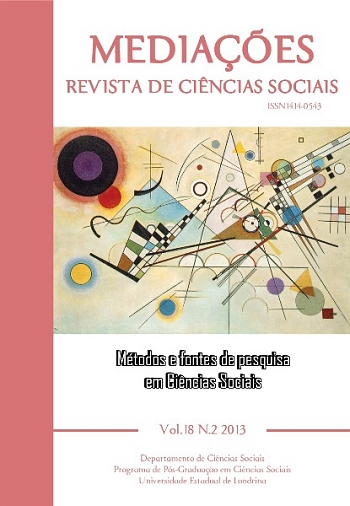State regulation for investments in the Brazilian graduate education research
DOI:
https://doi.org/10.5433/2176-6665.2013v18n2p65Keywords:
Graduate education, Scientific research, Graduate education institutions.Abstract
Micro data from 2010 graduate education census of the National Institute of Educational Studies and Research (Instituto Nacional de Estudos e Pesquisas Educacionais - INEP) are used to investigate how the Brazilian state and academic groups regulate research investment in the country. Data from graduate education institutions' research investments and their categories were crosschecked. We also analyzed the criteria used by the Brazilian Federal Agency for Support and Evaluation of Graduate Education (Coordenação de Aperfeiçoamento de Pessoal do Ensino Superior - CAPES) to allow graduate education institutions access to CAPES database. The categories are relevant as they indicate whether the institutions are public or private. They also indicate to what extent the institutions have been given autonomy by the state, by virtue of their being faculties, university centers or universities. The meaning of these divisions will be presented in the analysis of law which regulate graduate education in Brazil. We conclude that the restrictions on institutional autonomy imposed by the State to more than 80% of graduate education institutions in the country do not prevent them from investing in research. However, these investments lack clear institutional parameters, and they are encouraged by the academic agencies that coordinate graduate education in Brazil, which endorse a research university model for the entire system.Downloads
References
BRASIL. Decreto nº 5.773, de 9 de Maio de 2006. Disponível em: http://www.planalto.gov.br/ccivil_03/_Ato2004-2006/2006/Decreto/D5773.htm#art79. Acesso em: 30 out. 2012.
BRASIL. Lei nº 9.394, de 20 de dezembro de 1996. Disponível em: http://www.planalto.gov.br/ccivil_03/LEIS/l9394.htm#art54%C2%A72. Acesso em: 30 out. 2012.
CALDERON, Adolfo Ignacio; LOURENCO, Henrique da Silva. Ensino superior privado: expansão das cooperativas de mão de obra docente. Cadernos de Pesquisa, São Paulo, v.41, n. 143, ago. 2011.
CASTRO, Maria Helena de Magalhães. Brazil higher education policies and implementation. Campinas: Unicamp, 2012.
CUNHA, Luiz Antônio. Desenvolvimento desigual e combinado no ensino superior: estado e mercado. Educação e Sociedade, Campinas, v. 25, n. 88, out. 2004.
DURHAM, Eunice R. O ensino superior no Brasil: público e privado. São Paulo: NUPES, 2003. n. 3.
GRAMANI, Maria Cristina N. A influência da qualidade na atratividade de instituições de ensino superior com capital aberto. Ensaio: Avaliação e Políticas Públicas em Educação, Rio de Janeiro, v. 16, n. 60, set. 2008.
INSTITUTO NACIONAL DE ESTUDOS E PESQUISAS EDUCACIONAIS - INEP. Número de cursos, matrículas, concluintes, vagas oferecidas, candidatos inscritos e ingressos - 1991 a 2009. Brasília: Ministério da Educação, 2010.
SCHWARTZMAN, Simon. Equity, quality and relevance in higher education in Brazil. Anais da Academia Brasileira de Ciências, Rio de Janeiro, v. 76, n. 1, mar. 2004.
Downloads
Published
How to Cite
Issue
Section
License
Copyright (c) 2013 Daniel Guerrini

This work is licensed under a Creative Commons Attribution 4.0 International License.
Copyright on articles published in Mediações belongs to the author(s): in the case of partial or entire republication of the original publication, we ask author(s) to indicate the original publication in the periodical.
Mediações uses the Creative Commons Attribution 4.0 International license, which allows Open Access, enabling any user to read, download, copy and disseminate its content so long as adequately referenced.
The opinions expressed by the author(s) are their sole responsibility.

































